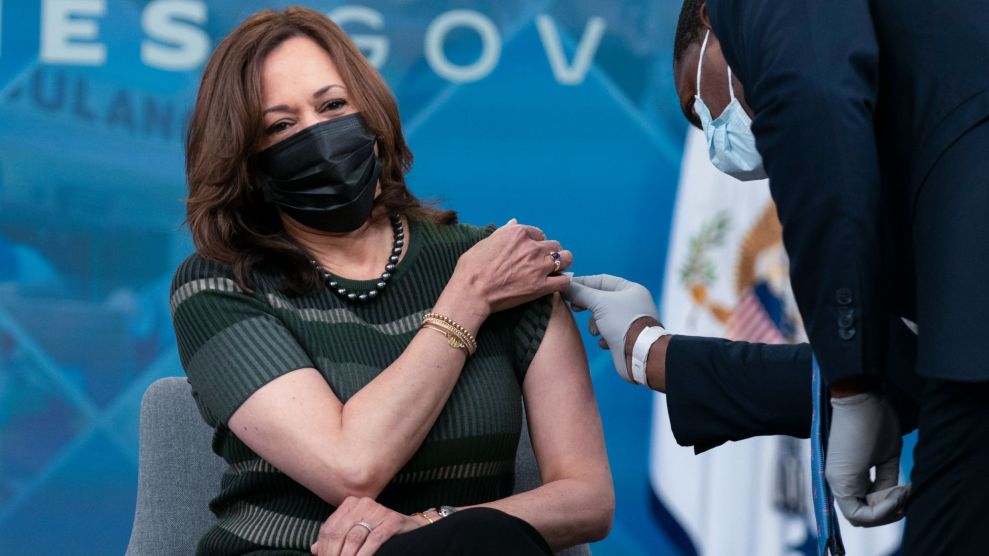
Manuel Balce Ceneta/AP
In a critical and near-final step toward making all Americans eligible for COVID-19 booster shots, the Food and Drug Administration on Friday authorized third doses of both the Pfizer-BioNTech and Moderna vaccines for anyone who received their second dose at least six months ago. The decision expands eligibility to tens of millions of people who didn’t qualify for boosters under the agency’s previous recommendations: those under 65 who were not considered to be at high-risk of serious illness or exposure.
Now, all that’s left before boosters open to all adults is for the Centers for Disease Control and Prevention to agree with the FDA. According to the New York Times, a CDC advisory panel plans to meet today, which means that boosters could become widely available as soon as this weekend.
The move will hopefully clear up confusion around the inconsistent messaging that has plagued the booster rollout for the last few months. Public health experts, the White House, and federal agencies were split on the necessity of booster shots for healthy people under 65, leading to a series of contradictory rulings and announcements over September that frustrated an already pandemic-weary public.
But ahead of winter holiday season, the broad green-lighting of boosters has come to be viewed as an inevitability, necessary to prevent a potential surge of infections as the weather cools and people begin to mingle indoors in greater numbers.
As I wrote earlier this week, the expanded eligibility requirements are, at least in part, a way of squaring federal guidance with what’s already happening at vaccination sites around the country:
Since most vaccine providers ask people to self-attest to their eligibility, third doses are widely available around the United States, even to those who may not technically meet the FDA and CDC requirements. FDA authorization for a Pfizer booster would bring federal recommendations in line with what, in many cases, is already happening on the ground.
The CDC’s interim clinical considerations regarding booster shots are also currently broad enough that most people could reasonably claim to meet them, said L.J. Tan, chief strategy officer for the Immunization Action Coalition, a vaccine information organization that works with the CDC. Tan pointed to one provision in the document that cites “an inability to work or meet other personal obligations when infected, even if not severely ill with COVID-19,” as a reason for considering a booster dose.
Some states, including Colorado, California, and New Mexico, have already made boosters available to all people 18 and up, provided that they are six months past the second dose of a Pfizer or Moderna vaccine, or two months past a single dose of the Johnson & Johnson vaccine.
















